 For a few years now, Mickey Keating has been my favorite up-and-coming indie horror director. While his newest project likely takes him away from the genre that staked his claim in the horror world, he's left behind a solid pallet of scary, low-budget indie gems in his young career. While he clearly wears his influences on his sleeve, he manages to create his own solid style from them. He likes to establish a sense of mood with his settings, with his visual style, and with music that encapsulates the period he's bringing to life.
For a few years now, Mickey Keating has been my favorite up-and-coming indie horror director. While his newest project likely takes him away from the genre that staked his claim in the horror world, he's left behind a solid pallet of scary, low-budget indie gems in his young career. While he clearly wears his influences on his sleeve, he manages to create his own solid style from them. He likes to establish a sense of mood with his settings, with his visual style, and with music that encapsulates the period he's bringing to life.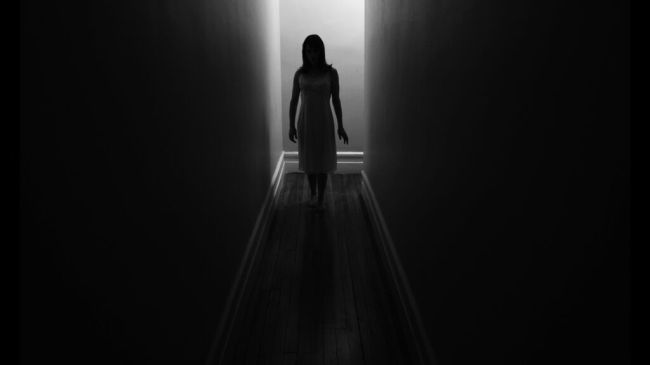 Darling is a mousy young woman taking on the job of caretaker to the massive mansion, one in which the last caretaker plummeted to her death from the balcony. The Madame, played by Sean Young, tells Darling that the house is filled with old ghost stories. This sets the tone for Darling as she explores the old home, finding a solitary room at the end of a long, spooky hallway locked. The locked door, and the upside down crossed fixed onto a dainty necklace she finds in a random drawer are the precursors for Darling's slow descent into madness - leaving us to wonder if it is her mysterious past, or the old evils of the house manifesting themselves into her psyche. At the end, Darling cryptically tells the Madame by telephone, "I think I'll become one of your ghost stories now."
Darling is a mousy young woman taking on the job of caretaker to the massive mansion, one in which the last caretaker plummeted to her death from the balcony. The Madame, played by Sean Young, tells Darling that the house is filled with old ghost stories. This sets the tone for Darling as she explores the old home, finding a solitary room at the end of a long, spooky hallway locked. The locked door, and the upside down crossed fixed onto a dainty necklace she finds in a random drawer are the precursors for Darling's slow descent into madness - leaving us to wonder if it is her mysterious past, or the old evils of the house manifesting themselves into her psyche. At the end, Darling cryptically tells the Madame by telephone, "I think I'll become one of your ghost stories now." 2016 also brought the film Carnage Park, yet another homage, but this time to the desolation and depravity of The Hills Have Eyes, and the spaghetti western tropes of the sheriff/outlaw pursuit. Carnage Park features dusty lawmen, seedy criminals, and something between Jason Voorhees and a Christian extremist/demented survivalist. What the movie lacks in overall scares, it makes up for with gore and dread. Keating uses a new leading lady in the effort, The Last Exoricism's Ashley Bell. Her performance in the demonic possession effort inspired Keating to put her into the hands of a sleazy criminal. Once there, both are on a collision course with a sharp-shooting madman in the middle of a hellish nowhere.
2016 also brought the film Carnage Park, yet another homage, but this time to the desolation and depravity of The Hills Have Eyes, and the spaghetti western tropes of the sheriff/outlaw pursuit. Carnage Park features dusty lawmen, seedy criminals, and something between Jason Voorhees and a Christian extremist/demented survivalist. What the movie lacks in overall scares, it makes up for with gore and dread. Keating uses a new leading lady in the effort, The Last Exoricism's Ashley Bell. Her performance in the demonic possession effort inspired Keating to put her into the hands of a sleazy criminal. Once there, both are on a collision course with a sharp-shooting madman in the middle of a hellish nowhere. On a fateful day in 1978 in which Vivian (Bell) tangles with bank loan officers, she's caught in robbery perpetrated by the seedy Scorpion Joe, played by James Landry Hebert, who plays a similar role in a later Keating movie. The heist takes them into the middle of nowhere, a desert landscape where dust and blood rule the day.
On a fateful day in 1978 in which Vivian (Bell) tangles with bank loan officers, she's caught in robbery perpetrated by the seedy Scorpion Joe, played by James Landry Hebert, who plays a similar role in a later Keating movie. The heist takes them into the middle of nowhere, a desert landscape where dust and blood rule the day. The gory story soon takes a turn for a mine shaft filled with skulls and bones, stockpiled by the madman killer, Wyatt Moss. Wyatt is a very real bad guy, maybe a little too real. He's definitely the antagonist of the movie, more so even than Scorpion Joe, but he's not all that scary (except for when he's donning his mine shaft gas mask). I think Keating should have allowed the mystery of the killer to endure a little more instead of showing him to us early on. Otherwise, Carnage Park is a solid effort, and is probably Keating's most well-known film.
The gory story soon takes a turn for a mine shaft filled with skulls and bones, stockpiled by the madman killer, Wyatt Moss. Wyatt is a very real bad guy, maybe a little too real. He's definitely the antagonist of the movie, more so even than Scorpion Joe, but he's not all that scary (except for when he's donning his mine shaft gas mask). I think Keating should have allowed the mystery of the killer to endure a little more instead of showing him to us early on. Otherwise, Carnage Park is a solid effort, and is probably Keating's most well-known film. In 2017, Keating gave us his latest movie, Psychopaths. Ashley Bell returned as the escaped mental asylum patient, Alice, disillusioned by an alternate reality in which she graces audiences with her swanky love songs. Alice is probably meant to be the lead psycho on the proclaimed "Night of Chaos," but the most interesting character to me is The Mask, a killer driven by revenge in a plethora of masks that cover his horribly-scarred face.
In 2017, Keating gave us his latest movie, Psychopaths. Ashley Bell returned as the escaped mental asylum patient, Alice, disillusioned by an alternate reality in which she graces audiences with her swanky love songs. Alice is probably meant to be the lead psycho on the proclaimed "Night of Chaos," but the most interesting character to me is The Mask, a killer driven by revenge in a plethora of masks that cover his horribly-scarred face.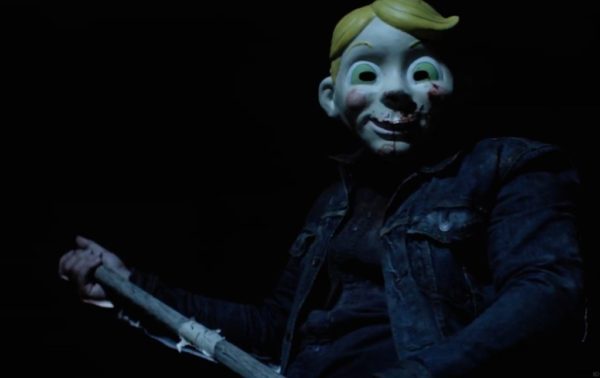 The execution of serial killer Henry Earl Starkweather, played by Keating movie regular, Larry Fessenden, sets off a bloody night in which his grisly influence transports into his "vessels," four other psychopathic killers - Alice, The Mask, The Strangler, and Blondie. The Strangler, who soon crosses paths with Blondie for a night he'll never forget, is played by James Landry Hebert, who nearly resumes his Scorpion Joe role from Carnage Park. His first strangling episode comes to the sounds of the '70s-infused choruses of Jaye Jayle's "The Beast Keeps Cool." The entire movie is filled with the sounds of the seventies, giving it a certain period feel, much like Keating gave with Darling.
The execution of serial killer Henry Earl Starkweather, played by Keating movie regular, Larry Fessenden, sets off a bloody night in which his grisly influence transports into his "vessels," four other psychopathic killers - Alice, The Mask, The Strangler, and Blondie. The Strangler, who soon crosses paths with Blondie for a night he'll never forget, is played by James Landry Hebert, who nearly resumes his Scorpion Joe role from Carnage Park. His first strangling episode comes to the sounds of the '70s-infused choruses of Jaye Jayle's "The Beast Keeps Cool." The entire movie is filled with the sounds of the seventies, giving it a certain period feel, much like Keating gave with Darling.Though Bell and Hebert return from Carnage Park, they never meet in Psychopaths. What makes the killers tick is never really revealed to the audience, but more alluded to, Keating keeping to the mysterious aspects that made Darling brim with such horror brilliance. Psychopaths flips around its many agendas throughout the film, switching narrative to each of the killers, all with a singular mission to respectively meet out. Alice is a disillusioned star in a psychotic mind, Blondie is an ultra-feminist in the guise of a sociopath, The Strangler is a sleazy ladykiller, and The Mask is the Terminator and Michael Myers in one, murdering anyone who stands in his path toward vengeance.
 Keating utilizes psychedelic, kaleidoscope colors, Tod Browning villain-like lighting effects, and a noirish narrative to relay his interweaving stories of absolute chaos. I had to wait a bit, but nearly squealed with glee when I found Psychopaths streaming on Amazon Video. I found Darling, Carnage Park, and Pod all streaming on Netflix, and have fanboyed my way through several viewings of each in my growing adoration for Keating.
Keating utilizes psychedelic, kaleidoscope colors, Tod Browning villain-like lighting effects, and a noirish narrative to relay his interweaving stories of absolute chaos. I had to wait a bit, but nearly squealed with glee when I found Psychopaths streaming on Amazon Video. I found Darling, Carnage Park, and Pod all streaming on Netflix, and have fanboyed my way through several viewings of each in my growing adoration for Keating.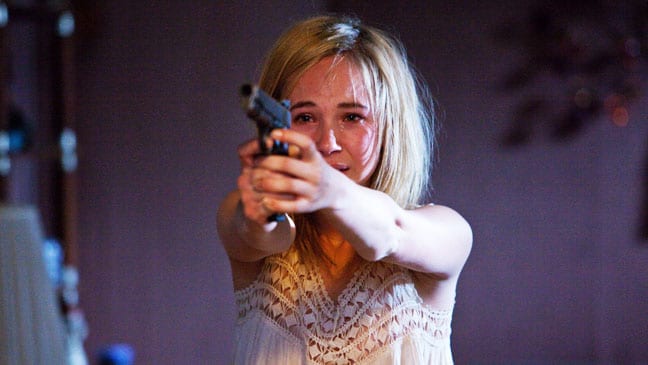 While the writer/director has spanned the sub-genres of horror in his canon thus far (sci-fi with Pod, psychological with Darling, crime and chase with Carnage Park, and slasher with Psychopaths), he will next release Crooks, his first departure from the horror genre altogether. While Quentin Tarantino expands his movies by having them take place within the same universe, Keating creates this sense of continuity with his actors. Crooks will feature Mark Kassen, whose suburban businessman was murdered by Alice in Psychopaths. It also features Juno Temple and Lena Headey, proving that Keating is stepping outside his comfort zone as far as his female muses go. The official synopsis of the movie reads as such:
While the writer/director has spanned the sub-genres of horror in his canon thus far (sci-fi with Pod, psychological with Darling, crime and chase with Carnage Park, and slasher with Psychopaths), he will next release Crooks, his first departure from the horror genre altogether. While Quentin Tarantino expands his movies by having them take place within the same universe, Keating creates this sense of continuity with his actors. Crooks will feature Mark Kassen, whose suburban businessman was murdered by Alice in Psychopaths. It also features Juno Temple and Lena Headey, proving that Keating is stepping outside his comfort zone as far as his female muses go. The official synopsis of the movie reads as such:[Crooks] is set in sin city in 1968, where a pair of hustlers, Johnny, played by Kassen and Faye, played by Temple, rob the decaying Moonlight Casino. Faye double crosses Johnny and takes off with the money and is soon pursued by the oldest and deadliest assassin in town. Worse still, Faye meets Blanche, played by Headey, a friendly but crazy waitress, at a truck stop.
The film won't enter production until the summer, which means a bit of a wait for the project. With Crooks taking place in the '60s, Keating again sets up his universe in a past decade, claiming that the movie will run rampant with vintage music. With a Las Vegas heist movie in his capable hands, we might expect tunes from Keating regulars Jaye Jayle, Shayfer James, or actual tunes that shaped the decade. There's no word on whether or not Crooks will feature Larry Fessenden, who has appeared in every Keating movie, who was a mentor to the director, and whose Glass Eye Pix produced most of the Keating films.
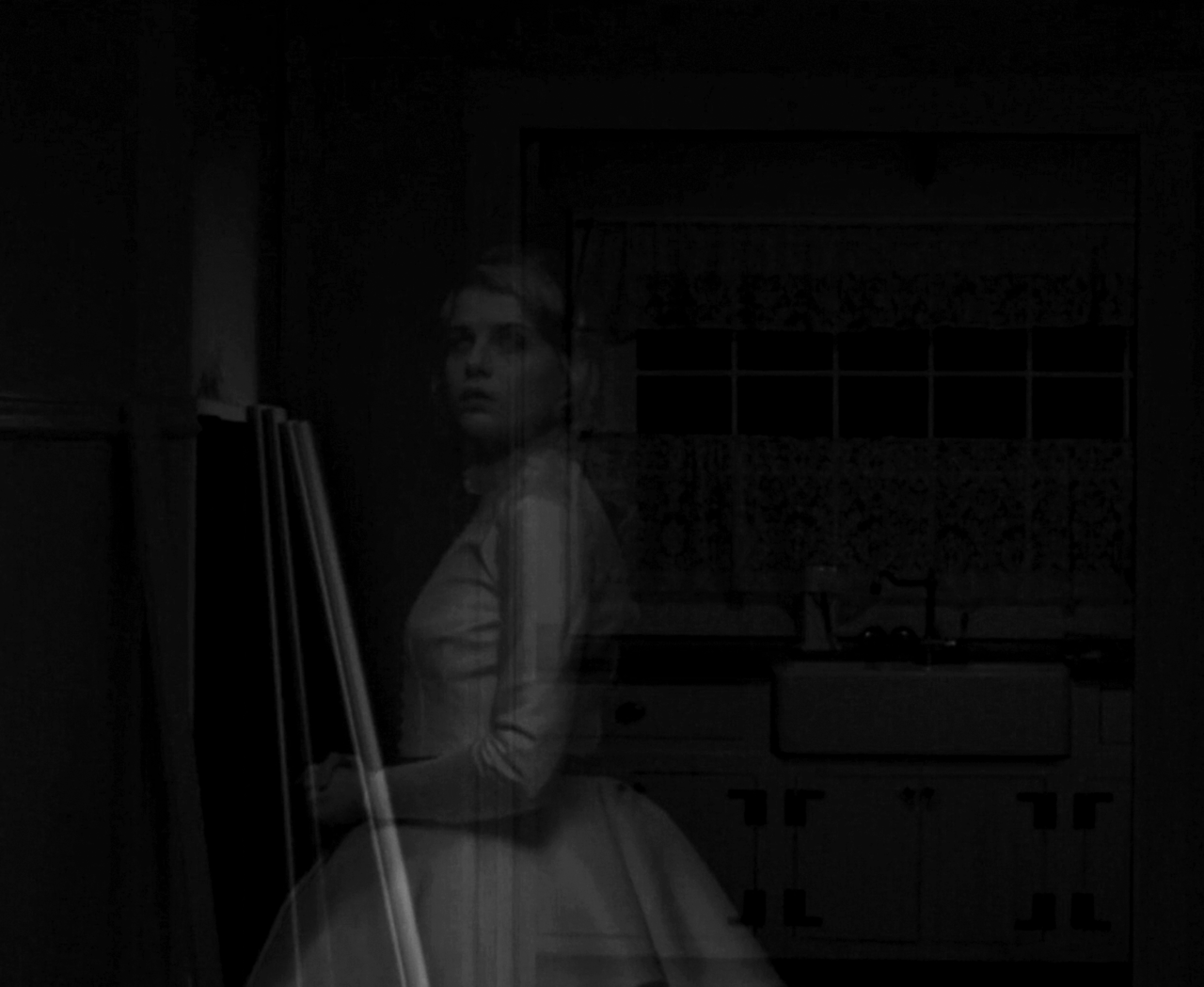 As I'm quickly finding out that horror is my favorite movie genre, but that I'm highly-selective in them, another writer-director tends to often awe me with his unique style. Oz Perkins, the son of legendary Psycho actor Anthony Perkins, has delivered two stellar films in minimalist ghost story I Am the Pretty Thing That Lives in the House (2015) and slow-burning demonic outing The Blackcoat's Daughter (2016). He doesn't have as many films under his belt as Keating, but while Mickey wows with his visual style and vintage flare, Perkins takes a more minimal route, terrifying his audience with dismal landscapes, eerie scores, and an overwhelming sense of dread.
As I'm quickly finding out that horror is my favorite movie genre, but that I'm highly-selective in them, another writer-director tends to often awe me with his unique style. Oz Perkins, the son of legendary Psycho actor Anthony Perkins, has delivered two stellar films in minimalist ghost story I Am the Pretty Thing That Lives in the House (2015) and slow-burning demonic outing The Blackcoat's Daughter (2016). He doesn't have as many films under his belt as Keating, but while Mickey wows with his visual style and vintage flare, Perkins takes a more minimal route, terrifying his audience with dismal landscapes, eerie scores, and an overwhelming sense of dread.
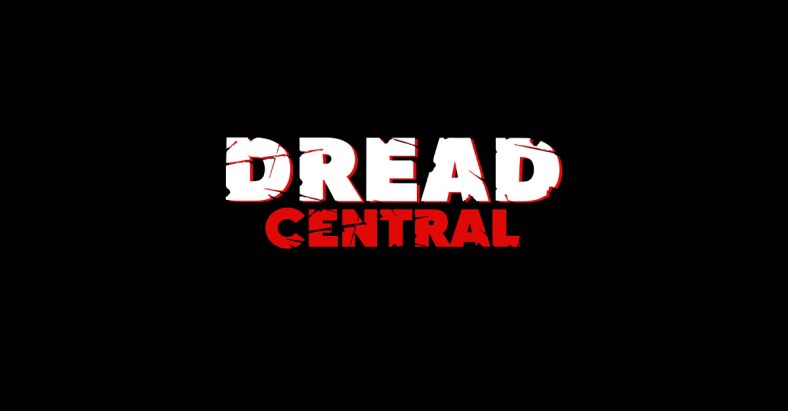 Mickey Keating has passed the point of "director to watch," and surged into the category of "director to next be your favorite." His gets more and more ambitious with every movie, which is why he's pulled in bigger actors like Juno Temple and Lena Headey in his latest film. It will likely be less horror than any of the others in his canon, but being that he successfully skates around all the toughest sub-genres of horror, there's no reason why he can't step into a new domain altogether. While Crooks promises to give an unconventional take on the Las Vegas heist trope, we can look forward to a Keating-esque experience where the violence will flow and the style will be brimming with vintage flavor.
Mickey Keating has passed the point of "director to watch," and surged into the category of "director to next be your favorite." His gets more and more ambitious with every movie, which is why he's pulled in bigger actors like Juno Temple and Lena Headey in his latest film. It will likely be less horror than any of the others in his canon, but being that he successfully skates around all the toughest sub-genres of horror, there's no reason why he can't step into a new domain altogether. While Crooks promises to give an unconventional take on the Las Vegas heist trope, we can look forward to a Keating-esque experience where the violence will flow and the style will be brimming with vintage flavor.
 As I'm quickly finding out that horror is my favorite movie genre, but that I'm highly-selective in them, another writer-director tends to often awe me with his unique style. Oz Perkins, the son of legendary Psycho actor Anthony Perkins, has delivered two stellar films in minimalist ghost story I Am the Pretty Thing That Lives in the House (2015) and slow-burning demonic outing The Blackcoat's Daughter (2016). He doesn't have as many films under his belt as Keating, but while Mickey wows with his visual style and vintage flare, Perkins takes a more minimal route, terrifying his audience with dismal landscapes, eerie scores, and an overwhelming sense of dread.
As I'm quickly finding out that horror is my favorite movie genre, but that I'm highly-selective in them, another writer-director tends to often awe me with his unique style. Oz Perkins, the son of legendary Psycho actor Anthony Perkins, has delivered two stellar films in minimalist ghost story I Am the Pretty Thing That Lives in the House (2015) and slow-burning demonic outing The Blackcoat's Daughter (2016). He doesn't have as many films under his belt as Keating, but while Mickey wows with his visual style and vintage flare, Perkins takes a more minimal route, terrifying his audience with dismal landscapes, eerie scores, and an overwhelming sense of dread. Mickey Keating has passed the point of "director to watch," and surged into the category of "director to next be your favorite." His gets more and more ambitious with every movie, which is why he's pulled in bigger actors like Juno Temple and Lena Headey in his latest film. It will likely be less horror than any of the others in his canon, but being that he successfully skates around all the toughest sub-genres of horror, there's no reason why he can't step into a new domain altogether. While Crooks promises to give an unconventional take on the Las Vegas heist trope, we can look forward to a Keating-esque experience where the violence will flow and the style will be brimming with vintage flavor.
Mickey Keating has passed the point of "director to watch," and surged into the category of "director to next be your favorite." His gets more and more ambitious with every movie, which is why he's pulled in bigger actors like Juno Temple and Lena Headey in his latest film. It will likely be less horror than any of the others in his canon, but being that he successfully skates around all the toughest sub-genres of horror, there's no reason why he can't step into a new domain altogether. While Crooks promises to give an unconventional take on the Las Vegas heist trope, we can look forward to a Keating-esque experience where the violence will flow and the style will be brimming with vintage flavor. 
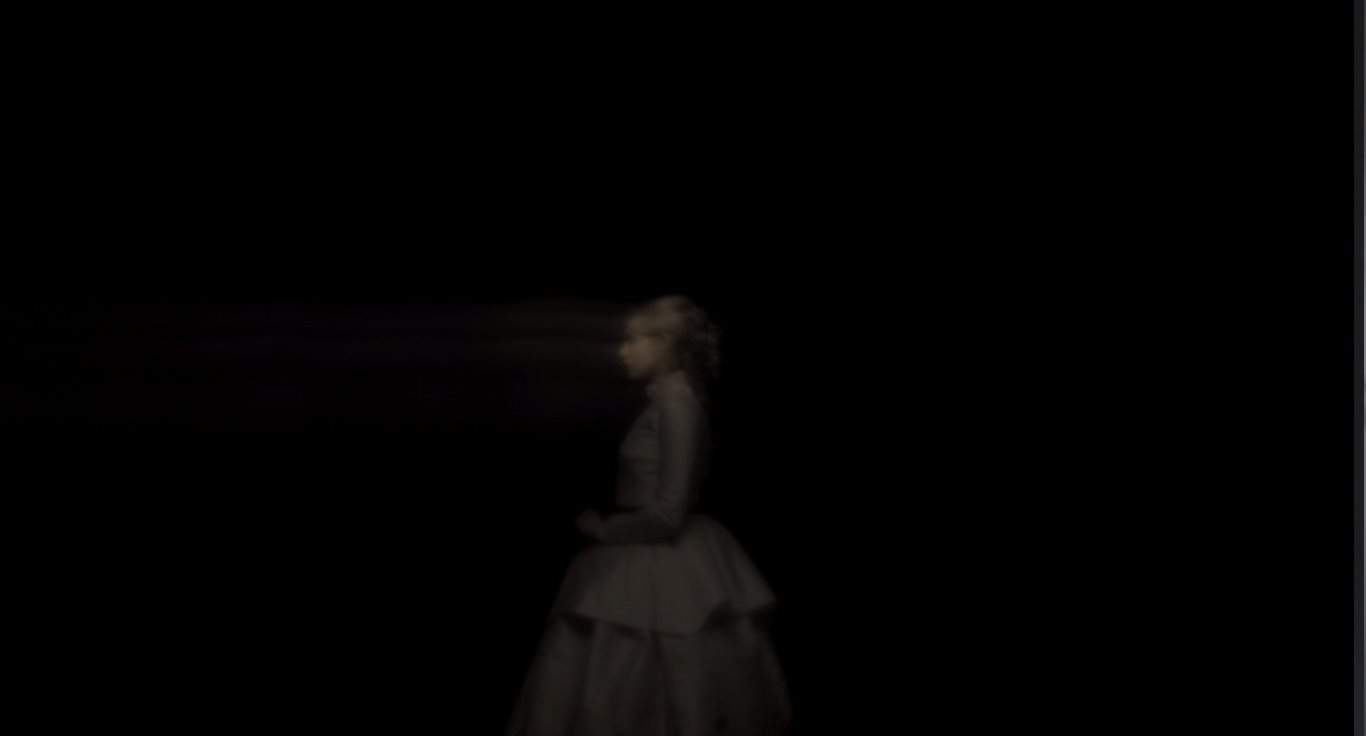
No comments:
Post a Comment